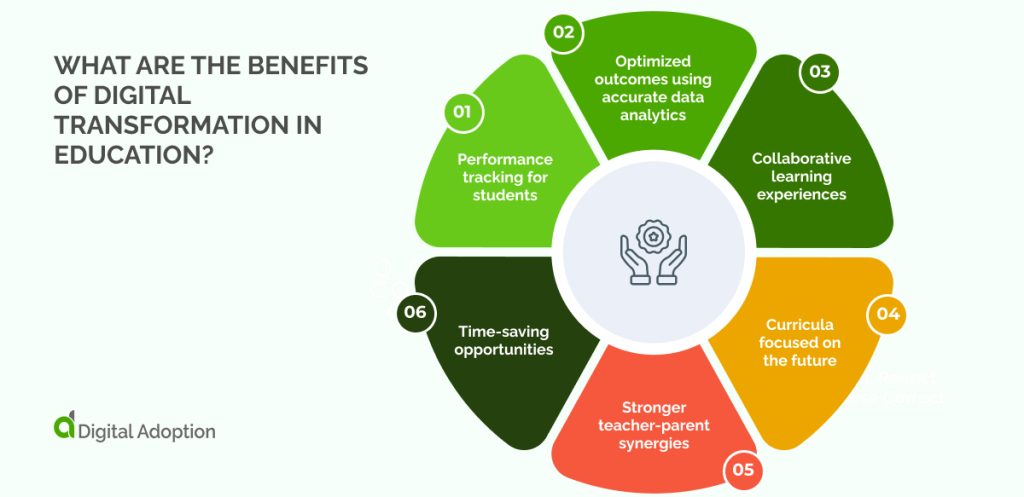
Introduction:
In an era marked by rapid technological advancement, traditional educational methods are undergoing a profound transformation. The emergence of Educational Technology (EdTech) is revolutionizing the way we learn, breaking down barriers to education and empowering learners worldwide. This article explores the pivotal role of EdTech in reshaping education, its impact on learning outcomes, and the challenges and opportunities it presents.
The Rise of EdTech:
EdTech encompasses a broad range of tools and platforms designed to enhance teaching and learning experiences through technology. From interactive learning apps and virtual classrooms to adaptive learning systems and AI-powered tutors, EdTech offers diverse solutions tailored to meet the needs of learners across various ages and backgrounds. The global EdTech market has witnessed exponential growth in recent years, driven by increasing demand for personalized, accessible, and flexible learning opportunities.
Personalized Learning:
One of the most significant advantages of EdTech is its ability to facilitate personalized learning experiences. Unlike traditional one-size-fits-all approaches, EdTech platforms leverage data analytics and AI algorithms to tailor educational content and activities to individual learning styles, preferences, and pace. This personalized approach not only enhances student engagement and motivation but also improves retention and mastery of concepts by addressing each learner’s unique needs and challenges.
Accessibility and Inclusivity:
EdTech has the power to democratize education by removing barriers to access and participation. Through online courses, digital textbooks, and mobile learning apps, learners can access educational resources anytime, anywhere, regardless of geographical location or socioeconomic status.
This increased accessibility is particularly beneficial for learners in remote or underserved communities, enabling them to pursue educational opportunities that were previously out of reach. Furthermore, EdTech offers support for students with diverse learning needs, providing adaptive technologies and assistive tools to accommodate individual disabilities and learning differences, thus promoting inclusivity in education.
Enhanced Engagement and Interactivity:
Interactive multimedia elements, gamification, and virtual reality simulations are transforming traditional classroom experiences into dynamic and engaging learning environments. EdTech tools foster active participation and collaboration among students, encouraging critical thinking, problem-solving, and creativity.
Through gamified learning activities and immersive simulations, learners can explore complex concepts in a hands-on manner, making learning more enjoyable and memorable. Moreover, EdTech enables real-time feedback and assessment, allowing educators to monitor student progress effectively and provide timely interventions when needed.
Empowering Educators:
EdTech empowers educators by providing them with innovative tools and resources to enhance their teaching practices and instructional strategies. From learning management systems (LMS) to content authoring tools and data analytics platforms, EdTech enables educators to create, deliver, and assess learning experiences more efficiently and effectively.
By automating routine tasks, such as grading and attendance tracking, EdTech frees up valuable time for educators to focus on personalized instruction, mentorship, and student support. Additionally, professional development opportunities and online communities enable educators to stay abreast of the latest trends and best practices in educational technology, fostering a culture of lifelong learning and continuous improvement.
Challenges and Opportunities:
While EdTech holds immense potential to revolutionize education, it also presents challenges that must be addressed to maximize its benefits. Concerns about data privacy, security, and digital equity require careful consideration to ensure equitable access to technology and safeguard sensitive information.
Furthermore, the rapid pace of technological innovation necessitates ongoing investment in infrastructure, training, and support to ensure effective implementation and integration of EdTech solutions in educational settings. Moreover, the digital divide exacerbates disparities in access to technology and internet connectivity, underscoring the need for concerted efforts to bridge the gap and promote digital inclusion.
Conclusion:
In conclusion, EdTech is poised to usher in a new era of learning transformation, empowering learners and educators alike to unlock their full potential. By leveraging technology to personalize learning experiences, enhance accessibility, and foster engagement and collaboration, EdTech has the power to revolutionize education on a global scale. However, realizing the full promise of EdTech requires collective action and strategic investments to address challenges and seize opportunities for innovation and improvement. As we navigate the evolving landscape of education, embracing the transformative potential of EdTech will be key to shaping a more inclusive, equitable, and learner-centered future.